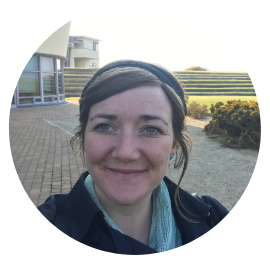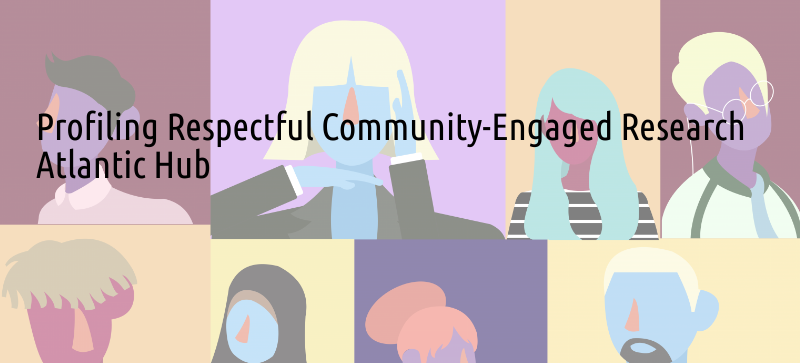 By Sondra Eger, Post Doctoral Researcher with the Rural Resilience Research Group and Coastal Routes Project, Grenfell Campus, Memorial University of Newfoundland.
By Sondra Eger, Post Doctoral Researcher with the Rural Resilience Research Group and Coastal Routes Project, Grenfell Campus, Memorial University of Newfoundland.
This article offers a reflection and synthesis of learnings from my recent participation in a course led by Community Engaged Scholarship Institute (CESI) at the University of Guelph. My intention is to share key learnings for others to consider. Essentially, no matter who you are or where you work, it is important to be open to the never-ending journey of learning. It is through learning that we are able to connect across different communities and bridge different ways of knowing.
I see community-based research (or CBR) as a means of empowering local communities, improving knowledge flow, and deconstructing deeply entrenched systems which have created inequality and unequal outcomes. This understanding evolved from my research on improving sustainability coastal and marine social-ecological systems. Moving toward sustainability will require policy that is more sensitive to place-based contexts; community members, whose livelihoods, traditional cultures, and identities are dependent on the ecological spaces, are often the most connected and understand how best to manage these areas for preservation of life and positive outcomes.
CBR has proven to be central to putting theory into practice in both the social and natural science disciplines. A few times over the past decade I have been afforded an opportunity to deeply and critically reflect on such issues as an individual. I have had to unlearn many principles, habits and perspectives shaped by not just post-secondary education but in life in general. I now know that these perspectives were unconsciously being reinforced through deeply embedded societal norms and my own personal biases and assumptions such as hidden colonial ideologies surrounding unbalanced power systems. This includes the power associated with knowledge and whose knowledge is recognized and drawn upon. As a white, cisgendered settler I have often been surrounded by the narratives (sometimes hidden) of colonization and capitalism that perpetuate a harmful status quo.
CESI’s Summer Intensive in Critical Community Engaged Scholarship
The CESI staff facilitated a full and thoughtful course that offered ample time and space to reflect on our own individual identities and positionalities as well as providing tips and tools for navigating related situations – from creating welcoming spaces to the value of art-based engagement and decolonization narratives. Enlightenment in community engaged scholarship and being a more thoughtful human in general is a process and will surely not begin and end with this weeklong course. However, it helped me to gain awareness of my individual context and I would certainly recommend it.
The modules and workshops covered a wide range of topics while allowing for active engagement of participants; from the foundations of effective knowledge mobilization, to strategies for responding to oppressive behaviours. These topics all shared the following core principles of CES:
- Power: Be aware of and address power imbalances
- Trust: Trust and relationships take time
- Reciprocity: Ensure that the process and the outcomes are mutually beneficial
- Context: Recognize that local problems need locally-appropriate solutions
- Knowledge: Respect and recognize various sources and forms of knowledge.
So what is community engaged scholarship and why is it so important?
CESI considers Critical Community Engaged Scholarship (CES) to include community-identified priorities, focus on relationship/partnership, deep collaboration, mutual benefit, attention-to and work to address – roots of social inequities, asset-based approaches to engaging community, co-creation of knowledge and collaborative action, and clear, accessible outputs (products). In my own experience, CES can lead to several benefits when put into practice such as:
- Tailoring research or engagement methods appropriately for quality participation
- Leverages the strengths of the community
- Mobilizes knowledge and provides more effective learning opportunities
- Increases participation of underrepresented or underserved communities
- Integrates and bridges disciplines and experiences to create real-world solutions
A BRAVE space.
You’ve likely heard of a ‘safe space’, which generally means a place or environment that is free from ideological and physical harassment, judgement, and criticism. A safe space allows for people to openly share and be treated with respect, dignity and civility. The CESI introduced the BRAVE Space, a new concept to me that builds on the meaning and strategies associated with safe spaces. A BRAVE space gently explores how people like to handle conflict and their preferred mechanisms of collaboration in order to progress ideas.
Often, open-ended questions are asked, such as “is there anything that you’re looking to develop for yourself within this partnership” or “what helps you learn new ideas?”. Certain information relating to preferences, sensitivities and personal style for handling conflict are included during initial introductions of each participant. Instead of listing credentials and current position, you share your preferred pronouns and provide insight to the group about your relationship with the land. These BRAVE spaces allow for us to gently float out of our comfort zones and be vulnerable. For engagement leaders and project organizers, BRAVE spaces encourage participants to take pause; to participate in a way that makes them feel comfortable and valued. It also allows organizers to learn more deeply about the positionalities and identities of individuals with whom they will be working.
What I took home
The main take away message is clear: integrating principles of community engaged scholarship is beneficial in work, research and day to day lives. For example, considering or using general community engaged scholarship principles and processes will enhance the real world relevance of any collaboration, research plan or knowledge mobilization activity. Fully engaging during the week was emotionally tiring but I also felt empowered and fulfilled.
The following points summarize what was personally valuable to me from the CESI Summer Intensive and the safe and BRAVE spaces it created. I was able to:
- Critically reflect on elements that make up my personal identity and develop awareness of my own embedded biases. In particular, I allowed myself to embrace my vulnerability and honestly reflect on how my personal history has impacted my view of the world (i.e., positionality).
- Become more self-aware of what norms may be harmful to others. Whether we realize or not, we may be reinforcing harmful biases and assumptions that impact or cause harm to another person.
- Learn practical tools and techniques to navigate and address situations when 1) someone’s behaviour has affected me or caused me harm and when 2) someone indicates that my behaviour has affected them or caused them harm.
- Understand what appropriate language is and how to engage in sensitive topics in an anti-oppressive way.
- The role and value of introducing ourselves in a non-scripted way that reveals elements of our positionality when building relationships, collaborating and navigating projects with partners.
How can we all do better?
Based on my recent experience with the CESI Summer Intensive, I would encourage students, researchers, teachers, and, frankly everyone to make a personal commitment to become more self-aware by taking action and integrating the following suggestions into how you work, live and play:
- Reflect on your own individual positionality, embedded biases and assumptions;
- Understand how these biases and assumptions direct/impact/impose/interact your work and others in our day to day life;
- Help others on their own personal journey and be patient, kind and helpful as we all learn and grow together;
- Commit to holding a brave space and co-create expectations with participants and attendees to collectively determine guidelines everyone can agree on that represent the values, concerns and interests of the group when leading or taking part in meetings or engagement;
- Check your organization or institution for training in Knowledge Mobilization (KM) and use a CES lens to inform your KM strategies. This means that when planning for research, project/ initiative or service objectives and goals you ask “so what” until you and the community can’t answer it anymore;
- Strive to create research impact beyond the normal players in your field. This will not happen automatically happen;
- Pause Allow yourself the time and space to be thoughtful about what is going on around you and when necessary – don’t be silent when someone does something that may be harmful to another;
- Develop personalized land acknowledgements to share before working, meetings and presentations– acknowledge your positionality, invisible disabilities, elements of gender and privilege. For example, I am a white settler with a compulsion disability and
- Lead by example. Hold yourself accountable to the and be a positive role model for communicating across communities, whether you’re teaching or leading a project or program, or whether you’re at the grocery store.
I’ve learned that if someone does something that causes you harm, it is important to let them know in an appropriate way. Often, they won’t realize how their behaviour is impacting you and they deserve a chance to understand why their behaviour was harmful and to change their behaviour moving forward. With every new position and partnership, I continue to learn the histories, complexities, and sensitives that are connected to these topics and how critical it is to expose ourselves to different ideas, perspectives, cultures, and activities. We grow as we step out of our comfort zones, created by context and environments, and tread into areas unknown, unsure of how they will impact us.
Please consider looking into the resources provided below. They can facilitate profound personal experiences that will undoubtedly make us more respectful researchers, attentive friends, considerate neighbours and overall – more thoughtful global citizens. Moreover, we will be more conscious of how to share our thoughts, feelings, work and research across diverse communities. I am grateful to have participated in this course and am inspired by the words of my fellow participants. The presentations and contributions from the group inspired me to build this synthesis and I hope I may motivate other folks to start or continue bravely on their own journey – however it may relate to these lessons. All content summarized in this reflection are from that the content/quotes are from the CESI 2021 Summer Intensive in Critical Community Engaged Scholarship.
This article is part of the special edition of September 2021: Respectful community engaged research. You can find more information here
Resources
- You will find more opportunities through CESI’s website such as:
- CESI Summer Intensive in Community Engaged Scholarship
- Certificate in Knowledge Mobilization
- Online Modules: https://healthsci.queensu.ca/sites/opdes/files/modules/EDI/power-privilege-bias/#/
- Exploring Positionality and Identity
- https://www.mcgill.ca/engage/files/engage/social-identity-wheel-handout.pdf
- http://doloreshuerta.org/wp-content/uploads/2020/04/Social-Identity-Wheel-3-2-2.pdf
- Facilitating asocial identity wheel session (Good example of community agreements at the end)
- Understanding Microinsults and Microaggressions
- Gender Inclusivity in the Workplace
- Race and Respect
- Planning for Inclusive Classrooms
- Exploring my power and privilege toolkit
- How to navigate oppressive behaviours
- Practicing Anti-racist Pedagogy
- Quick start
- Knowledge Mobilization Resources
- Research Impact Canada
- https://innovationyork.ca/knowledge-mobilization/kmb-resources/
CESI 2021 -Summer Intensive in Critical Community Engaged Scholarship General Agenda
Core Modules of Doing Impactful Research
- Introduction to Critical Community Engaged Scholarship (CCES)
- Integrated Knowledge Mobilization (KMb) and Community Engagement
- https://www.cesinstitute.ca/knowledge-mobilization/supports-kmb
- Two-Eyed Seeing: Indigenous Research Methods hosted by the Conservation through Reconciliation Partnership
- Moving Bravely Forward: Anti- Oppressive Practice and Critical Community Engaged Scholarship
- Community Expert Panel – to share perspectives and experiences as partners in critical community engaged scholarship and mobilizing knowledge for social change
Workshops
- Arts-Based Methods and Storytelling: Powerful Research and Advocacy Tools
- Planning for Research Impact: Creating Knowledge Mobilization Strategies
- Community Engaged Teaching and Learning: Resources and Supports to Bring Engagement into Courses
Despite being tailored to teaching contexts, these resources have valuable insights and activities that are relevant beyond the classroom.
***Note for researchers: Your Institution’s ethics is likely not good enough! Check out OCAP to supplement your learning on working with Indigenous peoples, organizations and governments.


